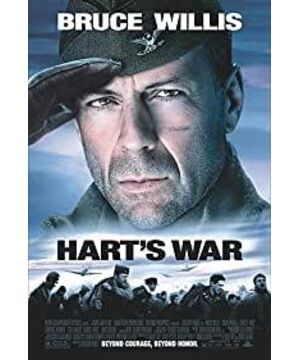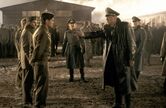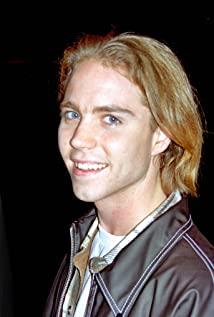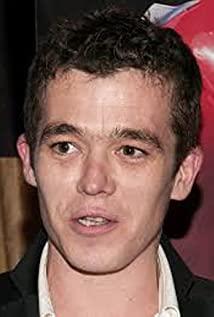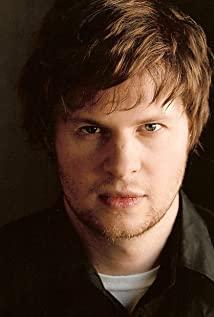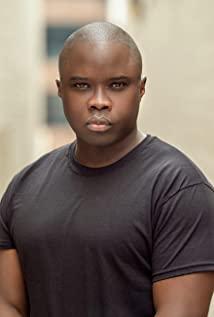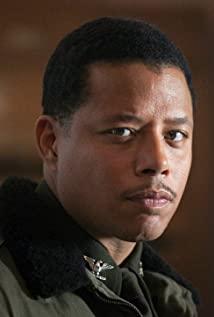This is a seriously underestimated film. It talks about World War II. It is not limited to World War II. It covers more connotations, including humanity, honor, dignity, loyalty, discipline, nation, justice, and so on. This film is the same as "Flood". When I was studying part-time in college, I watched many DVD discs, and the impression was the deepest among the discs I watched. Until now, the impression is still fresh.
If you want to discuss this film in depth, you must disassemble the plot, so spoilers are inevitable. Those who don't like spoilers are offended. First of all, this is a man's movie. It is about World War II. The first protagonist is Hart, and the plot revolves around him. The entire World War II was just the "Hart's War" here, and it was his own war. As a top student at Yale Law School, his father occupies an important position in American politics. In order to make his son's resume complete, he sent Hart to the battlefield, and is far from the front line of the Department of Internal Affairs. But the hapless Hart was captured shortly after he entered the European battlefield, and the cowardly Hart quickly confessed, revealing some intelligence to the Germans, and Hart, whose use value was squeezed out, was sent to the prisoner-of-war camp. In accordance with the Geneva Convention, the Germans allowed prisoners of war to implement internal management, so Colonel Mcramara, who was captured in the prisoner-of-war camp, became the supreme commander of the captured American soldiers. Colonel Mcramara assigned Lieutenant Hart who should have lived in the officer camp to the barracks of ordinary soldiers. Hart began to get in touch with the living conditions of the soldiers at the bottom and their thoughts and lives. He discovered that even in the prisoner-of-war camp, there were injustices and nasty places. Later, the two captured Afro-American pilots were also sent to the soldiers' camp by the colonel. And then a prisoner of war was killed. The originally innocent black pilot Lincoln Scott was identified as a murderer because of his skin color. Hart began to stand up and use his knowledge of Yale Law School to defend Scott. For the Germans, as long as Colonel McRamara surrendered one person to be killed, it was fine if he had to play a military court, just to make the Americans less idle. So Colonel Mc Ramallah became a judge of the military court in the prison camp, and Lieutenant Hart became a defense lawyer, defending the innocent black Scott. And as the case progressed, Hart also gradually approached the truth of the matter, and he discovered that the real culprit was Colonel Mcramara and the others. In terms of legal dignity and personal professional growth, Hart is facing a huge challenge. Should he continue, should he expose the truth, and seek justice for innocent black soldiers. This war is going on in Hart's heart. The real entanglement of Hart's war lies here.
But to change positions, from the perspective of Colonel Mcramallah. As a captured American, the colonel did not stop participating in the war because he was captured. He discovered that the true identity of the shoe factory in the POW camp was the German ammunition factory, but this important news was not known to the Allies. So Colonel Mcramara decided to dig a tunnel in the barracks of the high-ranking officers, while leading some American soldiers to escape from prison, while exploding the ammunition factory to complete the support for the frontline warfare. But a steady stream of prisoners of war may destroy this plan at any time. The new Lieutenant Hart is not a reliable person, because he confided important information as soon as he was captured, and he should be assigned to the soldier camp. The same is true for the new blacks, because the entire plan is about to be completed, and any newcomers must avoid suspicion. But at exactly this time, a soldier with a stain on his body discovered the colonel's plan, so the colonel could only kill the traitor in order to complete the rectification plan. And Hart’s coming forward can just organize a court to divert the attention of the entire prisoner-of-war camp to this court, including the proud German who manages the prisoner-of-war camp. German military officers thought that the colonel was a person who should accept German racial superiority, so the colonel must first admit the fact that blacks are inferior to whites. The colonel made effective use of this, opening the military court in a decent way, all in order to cover up the plan to escape from prison and blow up the ammunition factory. But Hart's ability gradually emerged as the colonel's plan progressed. He clarified the course of the matter bit by bit, and gradually approached the progress of the colonel's plan. In the end, he actually asked the colonel to stand up and plead guilty. If Hart wins in court, then the colonel's entire plan will be in vain. The colonel had to apportion and told Hart the truth. Hart’s psychological warfare unfolded. Was it for Scout’s innocence to point out that the real culprit was the colonel, or to sacrifice the innocent Scout for the colonel’s plan? Hart, who had gradually matured in the prisoner-of-war camp, finally accepted the test, and he took the blame for the murder. Scout was also informed of the plan to blow up the ammunition factory, and he was willing to use his own death to fulfill the colonel's plan, dedicate his life to the country and become a victim of "racial discrimination." After sending the soldiers out of the prisoner-of-war camp, the colonel returned to the Germans alone. He finally stood up in the flames of explosions, confessed everything, and was willing to die.
Under this multi-angle interpretation, the context of the whole story is much clearer. From one dimension, the film is about the growth process of a soldier, just like the Wang Jincun in "Assembly", from being timid to becoming a qualified soldier; from another dimension, it is a colonel. After being captured, he still persisted in fighting and engaged in an unyielding struggle. While working hard to maintain the honor of soldiers, he also made legitimate persistence for the country and justice, and he was completely unafraid of death. From this perspective, Colonel Mcramara is the first protagonist of this movie; from the perspective of the black pilot Scott, it is the honor and dignity of racial equality. He has become a pilot but still receives unfair treatment. This is intolerable. Stick to your own intelligence, and once you know the colonel's plan, you immediately put aside the idea of equality, immediately obey the needs of the country, and are willing to die. Such soldiers are good. The three dimensions, three perspectives, and the images of the three characters are all distinct. Colonel Mcramara, starring Bruce Willis, is completely radiant in this film. It is a role that Willis has performed quite well in recent years. It interprets the forbearance, generosity and responsibility of an American officer. To be nearly perfect; Hart played by Colin Farrell completes the image of an American soldier in the whole process from cowardice to maturity. Farrell perfectly outlines a soldier's image with his slightly melancholy expression. The role; the black soldier performed by Terrence Howard, there are not many shots, but it is enough to leave a clear enough impression. At this time, his reputation is still very small, but in 2004, he starred in "Crash". Completely make people become a first-line movie star. These three roles performed very well, but from the cast list, there is actually "Avatar" Sam Worthington starred in it. This handsome man who only became popular in 2009, N years ago, only I can sit in the toilet among the soldiers and beat soy sauce. I don't know if I can find his shaking face when I look again next time.
View more about Hart's War reviews


